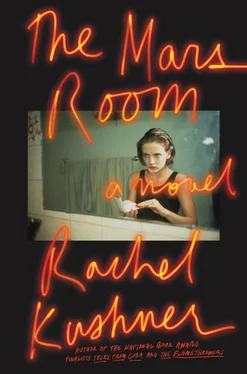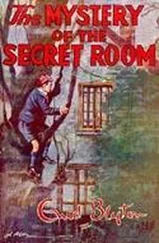The goth landlord was screaming my name because he’d seen my car on the street. He needed help and knew I was home. He had sheared off two fingers and a thumb with his own table saw. He had the severed parts in a garbage bag. I drove him to Kaiser Hospital in Hollywood, the Burger King of health care, running my horn through intersections along Sunset Boulevard, as the guy bled on the seats in my car, which was a drag because that was a nice car—my Impala. I was stuck with him in the emergency room until his girlfriend could get there from her job. They had him shirtless and tubed with IV pain medication. I was forced to look at his tattoo, a chest-sized upside-down cross.
“Got this to spite my brother,” he said, his words thick from pain medication. “He’s a minister.”
You sure showed him, I did not say.
———
Victor dead, Conrad dead, the goth neighbor with half a hand. His tenants facing misery, amputation, deportation, the streets.
Bad luck was all around me, although my neighbor and his table saw, that was more like karma. But maybe the worst omen was the veteran, all in black like a grackle. A shadow that crossed my path in the form of a man.
I had taken my car to the shop to have the radiator rodded. The auto shop I went to was off Glendale, and it was an easy bus ride home. The bus I wanted was the 92. I was waiting when this man strolled up, VIETNAM tattooed vertically up his neck. Black felt hat, black clothes, black shoes with no socks, little tinted sunglasses, stylish in an unwholesome way. “I was a POW,” he said to me, showing me his home-inked hand: POW.
There are two planes of time: the time of waiting for the bus, and the time when the bus finally pops into view. I was in the wrong plane of time, and stuck with a crazy. Soft heat and exhaust blasted my bare legs as cars accelerated up the hill.
“They cut the head off my penis,” the POW said.
“Don’t tell me about that.”
“I apologize,” he said. “Hey, could you spare anything?”
I handed him a dollar, because there was still no sign of the bus and I wanted him to move away. He took the dollar, opened his wallet, but before putting the bill in, he turned the wallet around, so that I would not see what other bills he had in there. It’s always this way. Crazy people only lose their cunning last, if they ever lose it.
The bus arrived. I sat in the back. The ghost of my childhood lives in the back of buses. It says, What’s up, juts its chin. The POW sat in the handicapped seats up front, struck up a conversation, bothered someone else. He got off at the Arco farther down Glendale, where heroin is bought and sold. I was watching him out the window. I craned my neck to see if he was scoring dope. But what gave me the goddamned right to take note of what he did and where he went? You can’t own someone for a dollar.
———
Thanks to Jimmy the Beard and his idea of a practical joke, Kurt Kennedy drove his motorcycle all the way to Los Angeles. Parked it between two cars. He waited on my porch behind a thick screen of bougainvillea, so that he was invisible from the street.
That morning, a Sunday, it was ninety degrees when I got up. Jackson and I went to the beach with Jimmy Darling. I’d never been to the Venice boardwalk, and perhaps taking me there was Jimmy Darling’s own idea of a practical joke.
We strolled along, past the sword swallowers and tattoo parlors and piercing salons. The tables with pineapple incense, blueberry incense, and melon oil. Mango and strawberry hookahs. Crunk and old-school hip-hop blared as hippies danced recklessly, swinging their waist-length beards and beads. Homeless senior citizens slept in pools of urine. Shirtless Rollerbladers, fake-baked and sweaty, weaved among the crowds and the indiscreet piles of vomit. People shoved. Children cried.
This is awful, I said.
Jimmy Darling put his arm around me and said that he liked to think of it as the very best California had to offer. We walked over to the skateboard park because Jackson wanted to watch the teenagers riding around in its concrete pools. When we got there an argument was erupting between two skateboarders. One cracked the other over the head with his board. People came out of nowhere, and suddenly there was a crowd of shirtless men, fighting.
Jimmy picked up Jackson and ran. I followed them. We found our car and got in it and sat. I was upset. That crack, board to skull. Jimmy calmed me down. We took Jackson into a bar away from the beach, ate hamburgers and watched a Dodgers game. After the game, as we said goodbye, it felt like I had someone I could rely on. We kissed through the window of Jimmy’s truck until I pulled away and said goodbye.
I drove home. Jackson fell asleep in the backseat. It was probably nine p.m. when I parked on my street. I know it was nine p.m. because every minute was later accounted for.
I mounted my stairs, carrying my slumped little boy over my shoulder.
On my porch, in my porch chair, sat Kurt Kennedy. Kennedy, with his dented and bald head, the square freckles, the neckroll, the hoarse voice, the persistence, here he was.
To have moved away, and felt free of him for the first time in months. And to come home and find him waiting for me.
I had the bad luck, too.
Candy Peña made baby blankets with the yarn Gordon Hauser had brought her. The blankets were collected by a unit officer and placed in the office of receiving and release. Whenever Gordon passed the office he saw them there, in a giant leaf bag, the colors of the yarn that he had chosen peeking out, garish and sad. One day he asked the officer in R and R about their status. The officer was a scalded blonde with a tight ponytail, brusque, ex-military. She snorted. “These? Nobody wants ’em. I keep forgetting to tell the porters to take them out to the trash.”
That same officer supervised family visits, when inmates got thirty-six hours in the prison’s version of an apartment, with blood relatives.
Blood relatives. It sounded so violent. Or was Gordon losing perspective, everything warped by what was around him.
Was it difficult to watch them say goodbye? Gordon had asked the R and R officer, before he knew better. He had witnessed, passing family visiting, small children clinging to their mothers and crying hysterically. Someone had painted a lavender hopscotch pattern on the walkway outside the family units.
“You grow a thick skin,” the officer said, her mouth pulled into a frown, as if to demonstrate: this is thick skin. “Especially when you know it’s the mother’s own fault.”
It would have been better if the baby blankets had gone to the trash. Instead, one of the unit cops had redistributed them to the women on death row who had made them. When Gordon was next back there, Candy Peña had patched together her two baby blankets into a large vest, a sort of poncho, in soft, gauzy blue and yellow. She held it up. “I hope it fits?”
Knit was the past tense of knit. And no one wanted what Candy Peña knit, not even Gordon, who put the vest in a paper bag deep in the trunk of his car and tried to forget about it.
———
He let whiskey pad his brain at Baressi’s one night and was overcome by nostalgia for Simone, the woman he’d dated in Berkeley. Recently she had called and left a message, wondering if he’d plugged in his refrigerator. That had been her joke when they’d dated, meant to imply he was a work in progress, not ready yet, but eventually headed for, life with a plugged-in refrigerator. It was a way of equating his lack of domestic instincts with his rejection of her, which made him guiltier than she knew, because it wasn’t quite right. It was Simone he’d had reservations about, not parting ways with bachelorhood. He had not called back, and why not? Now that he was drunkish and lonely he could not think of the reason. The young bartender, with her big smile, her fake breasts pressing against the buttons of her shirt, kept asking the assembled but separate drinkers, all male, if they needed anything. “Y’all have everything y’all need?” She asked it like this was Appalachia and not the Central Valley.
Читать дальше








![О Генри - Меблированная комната [The Furnished Room]](/books/415396/o-genri-meblirovannaya-komnata-the-furnished-room-thumb.webp)
![О Генри - Комната на чердаке [The Skylight Room]](/books/415780/o-genri-komnata-na-cherdake-the-skylight-room-thumb.webp)


